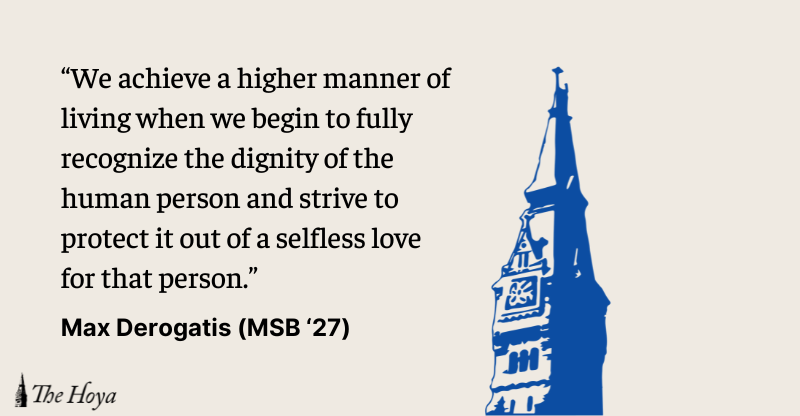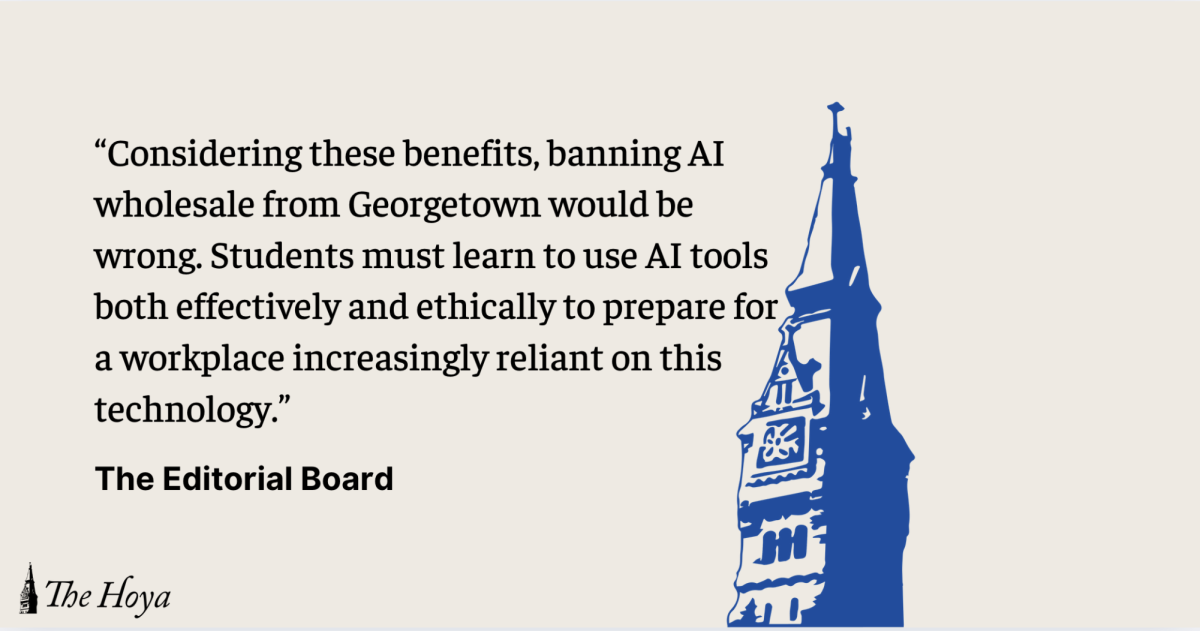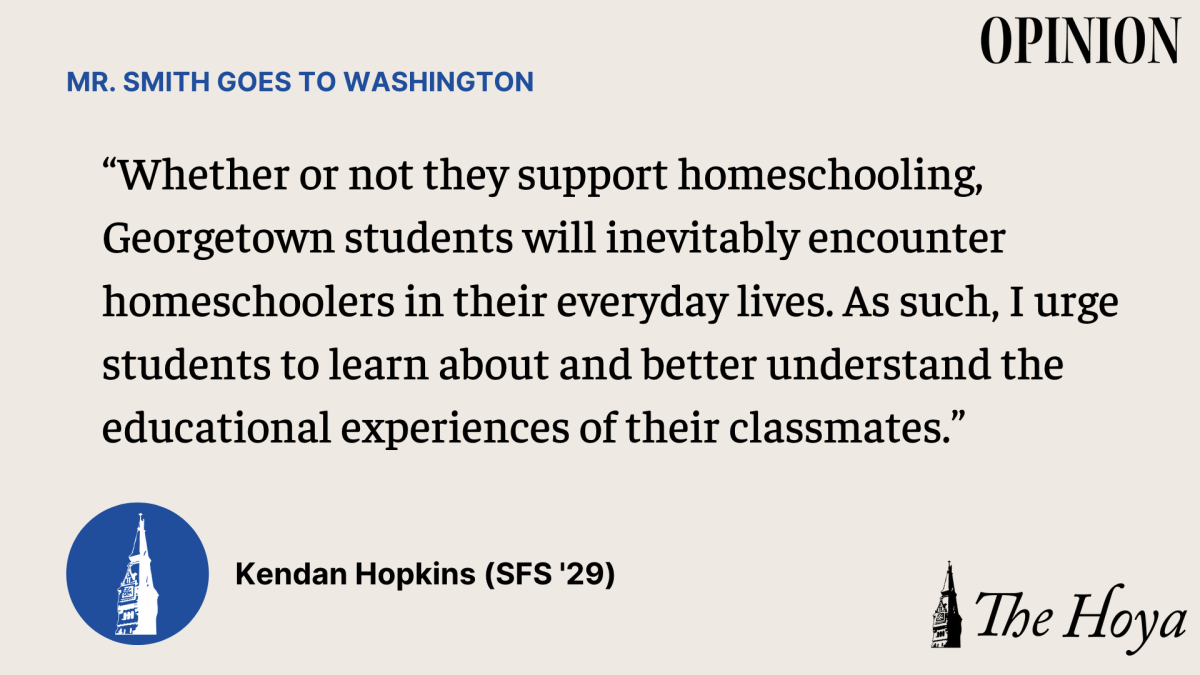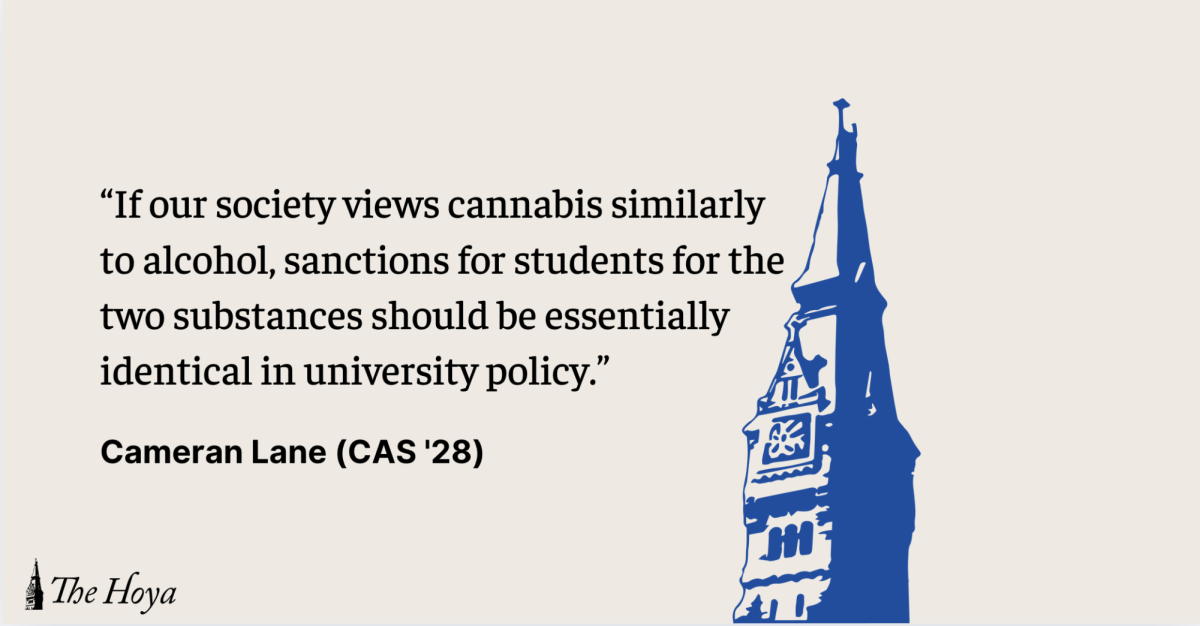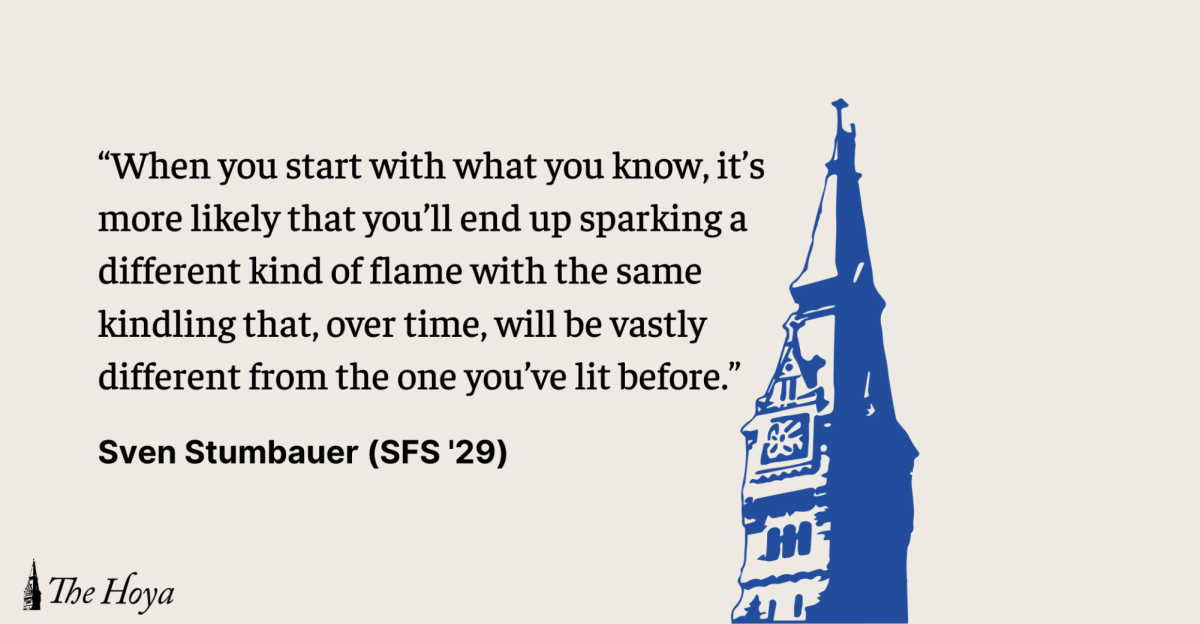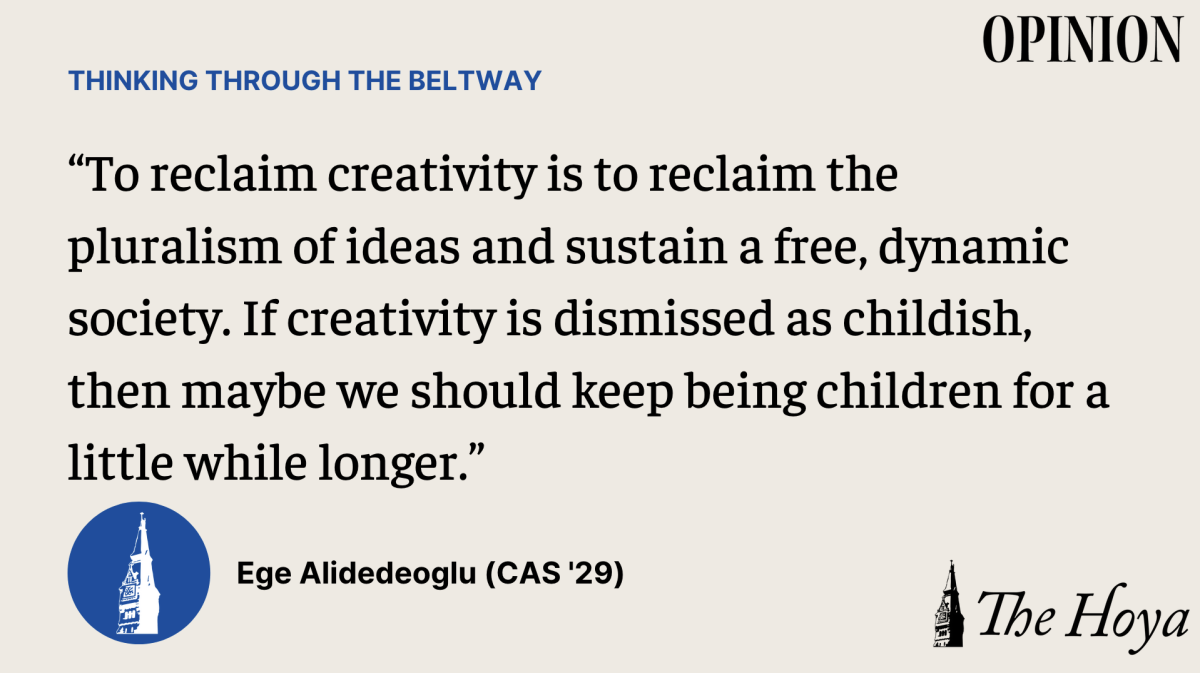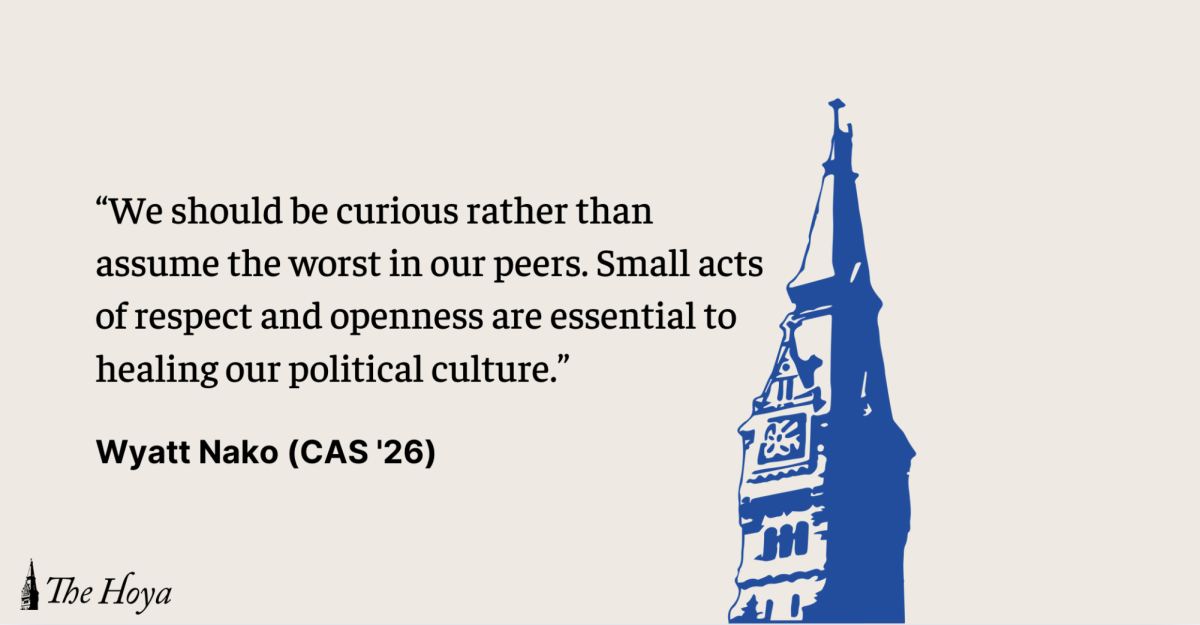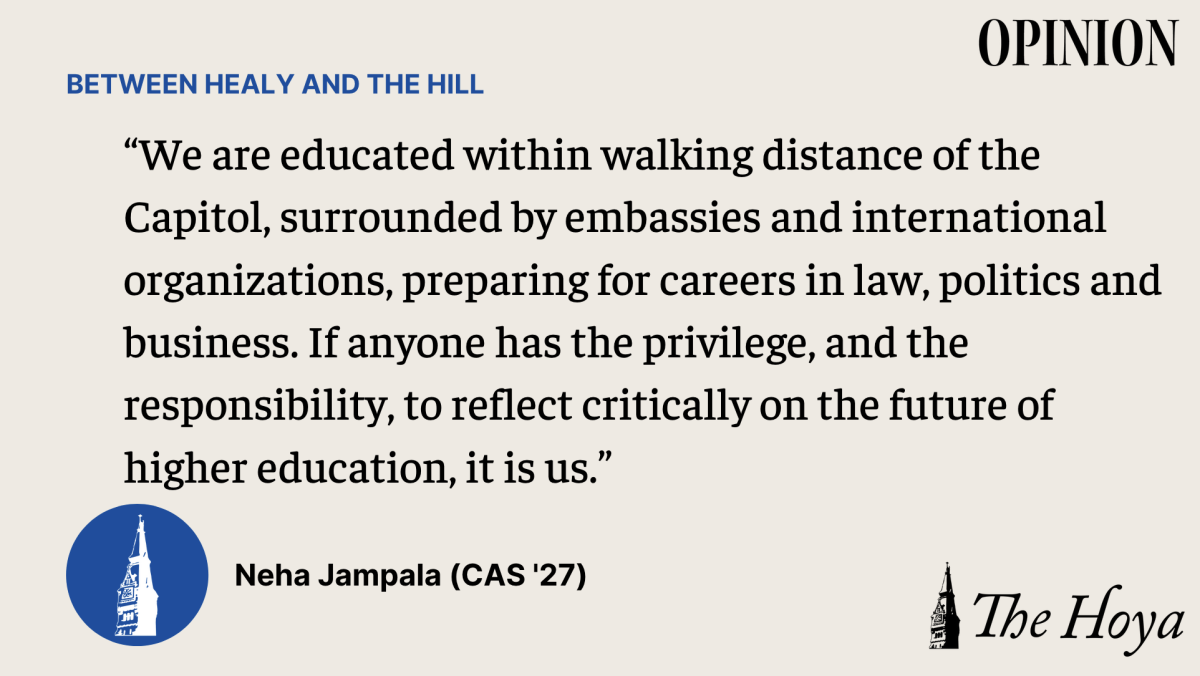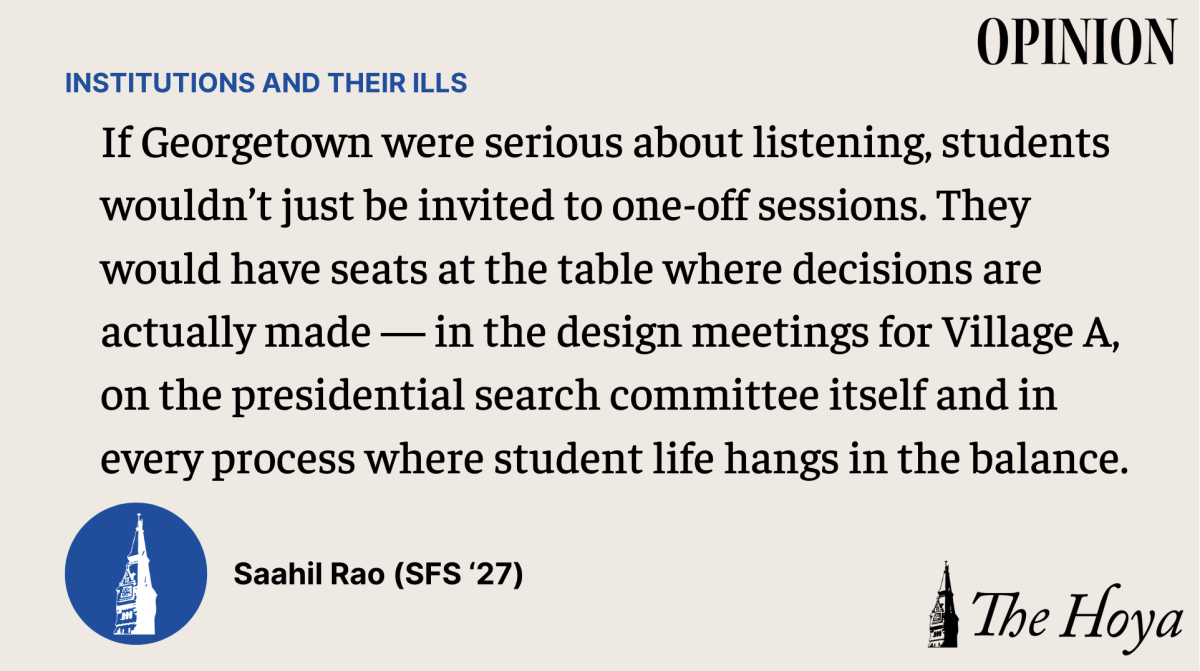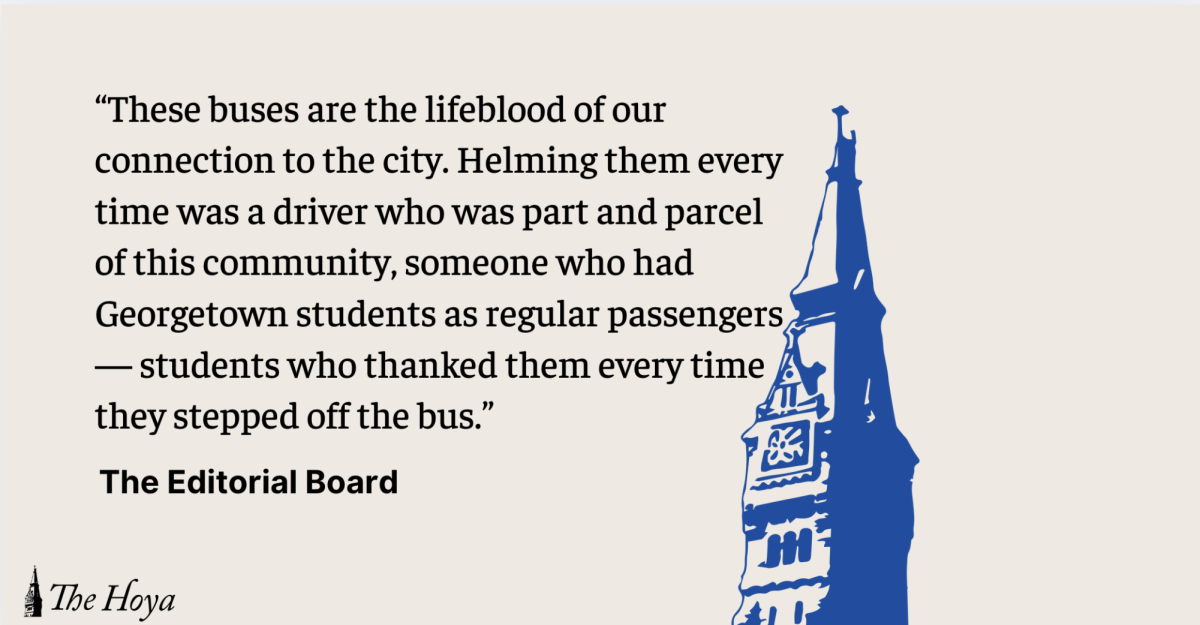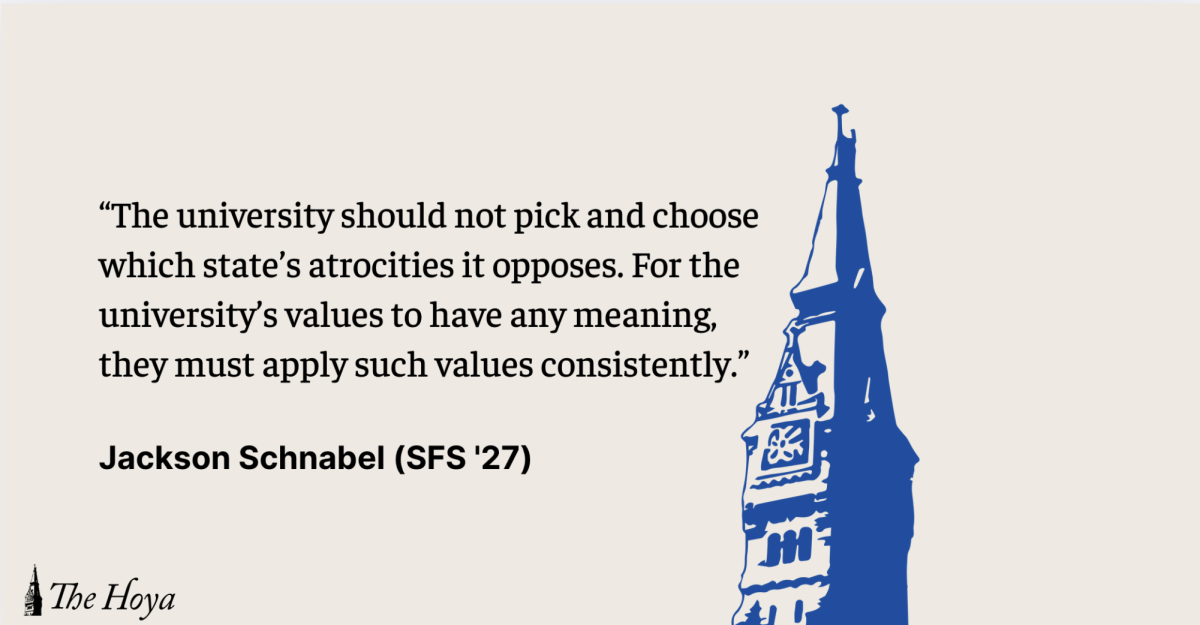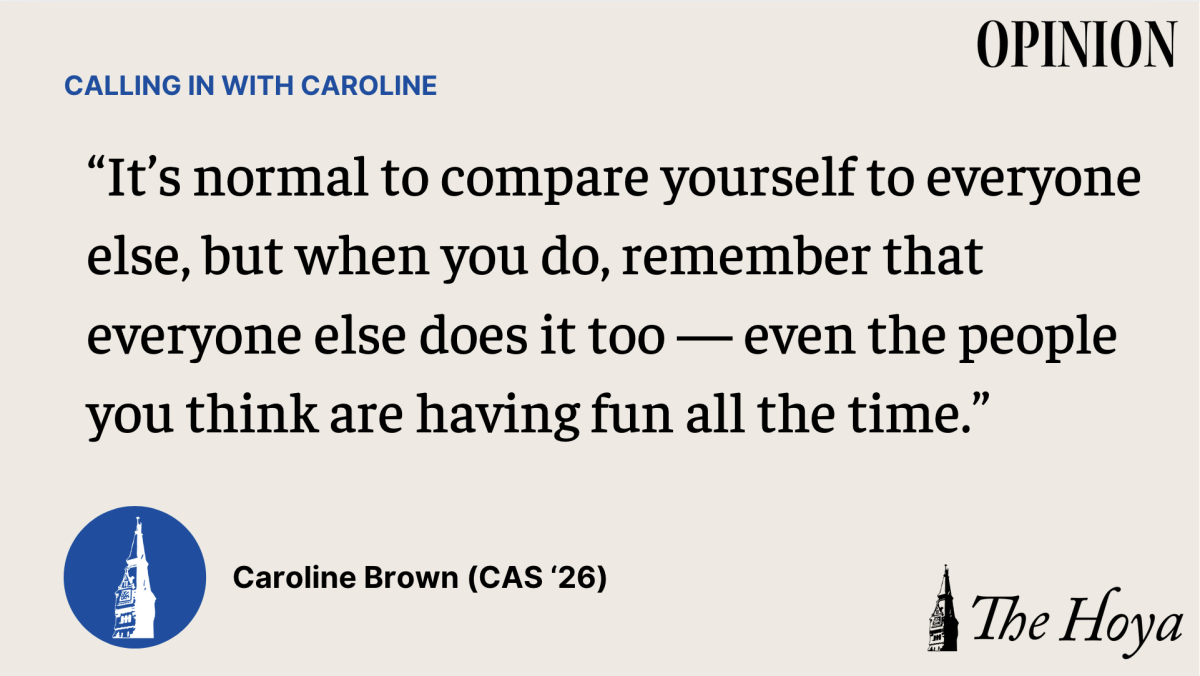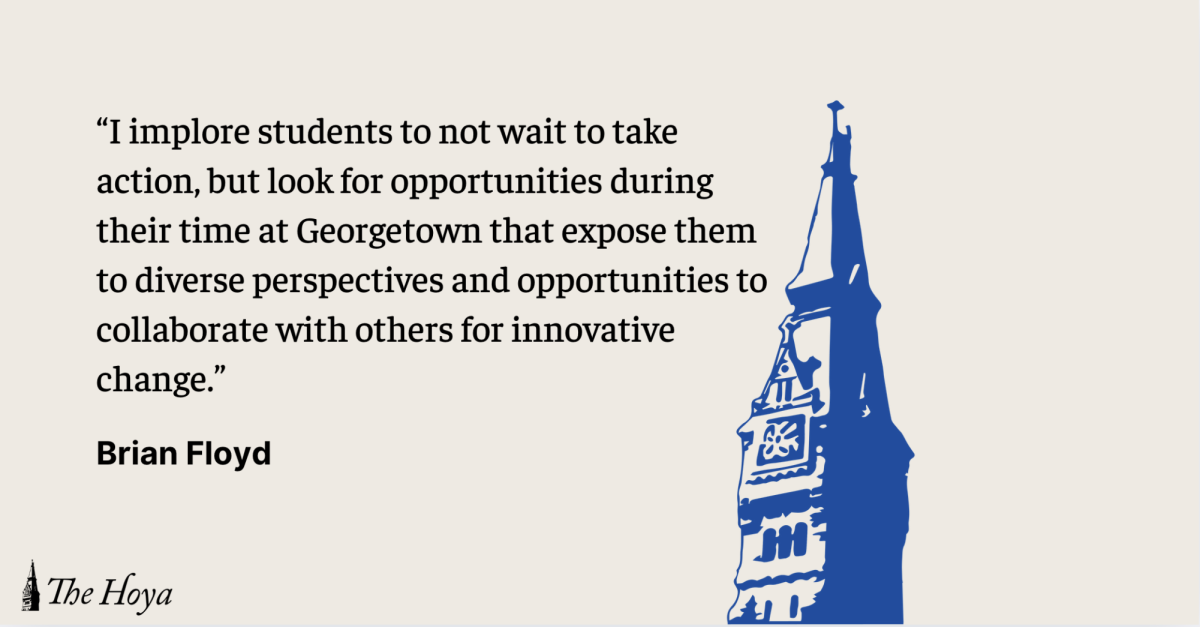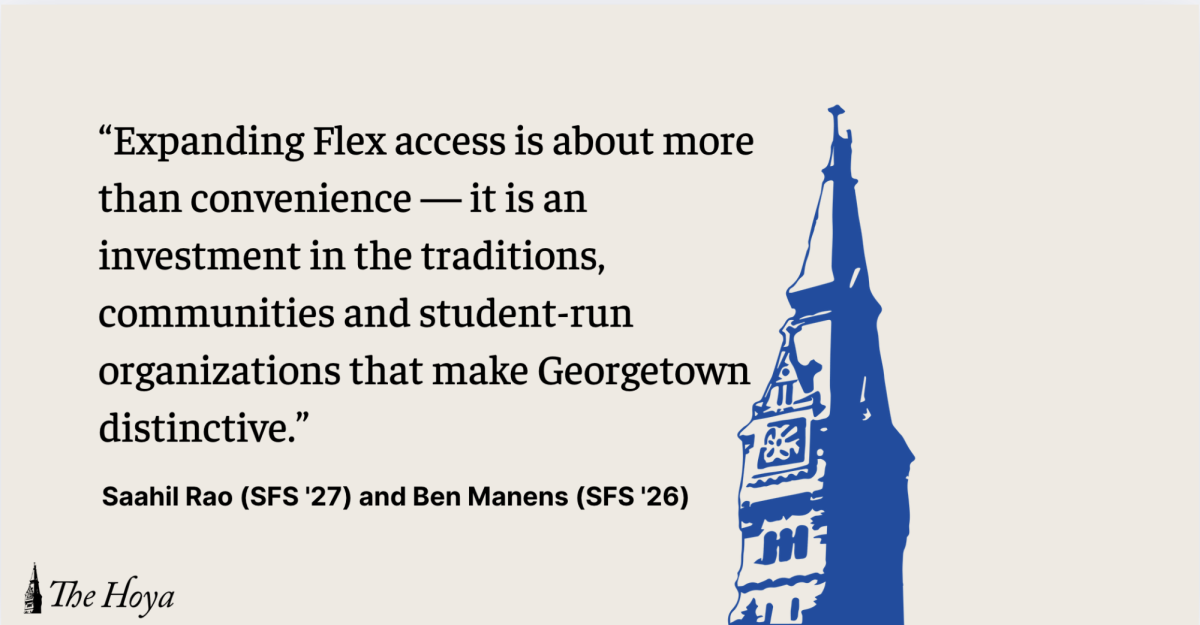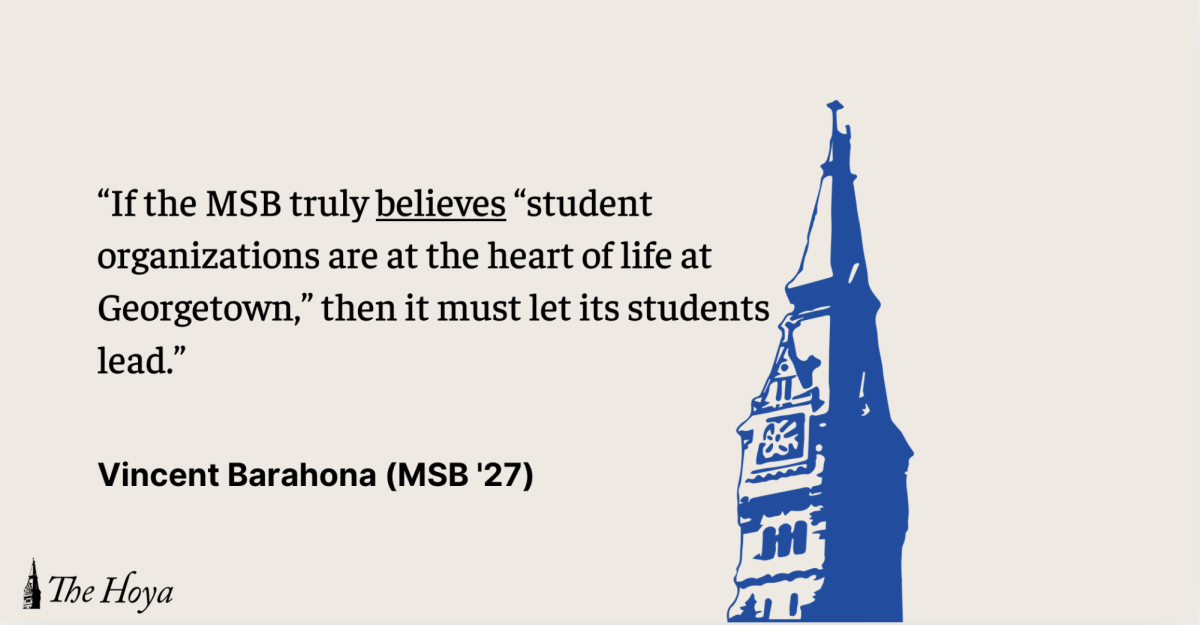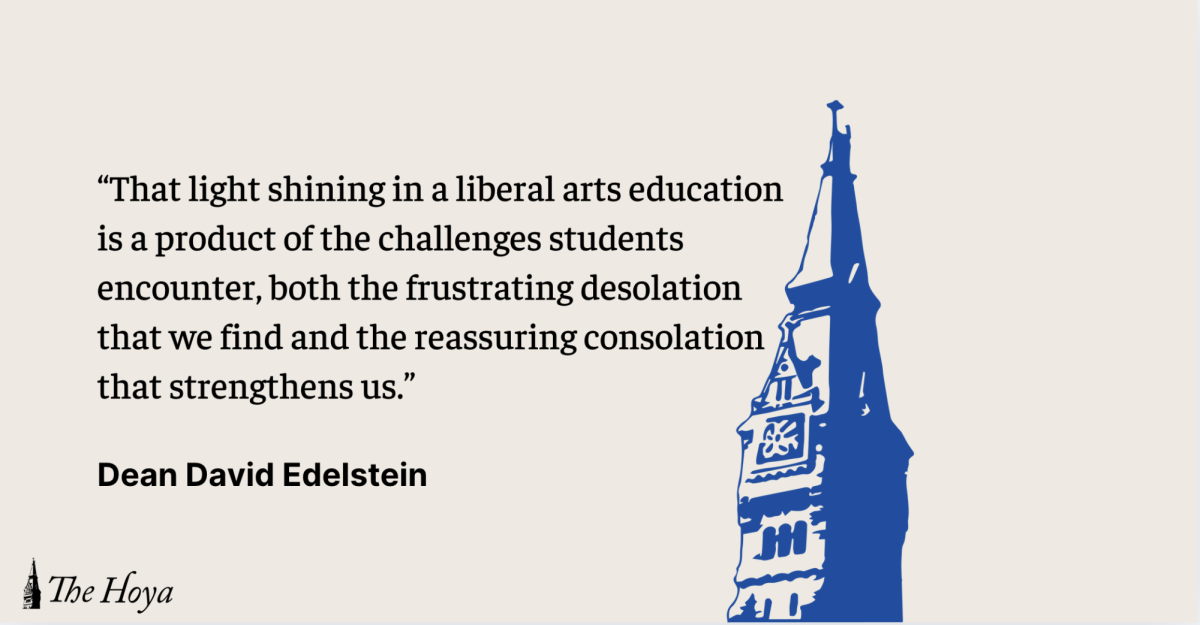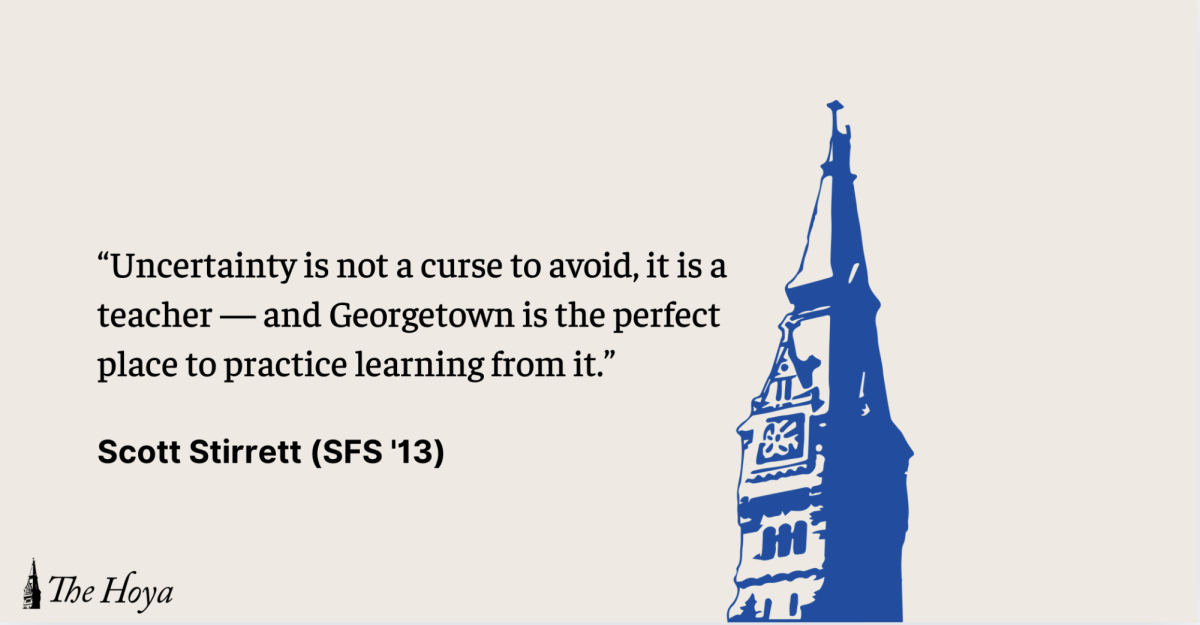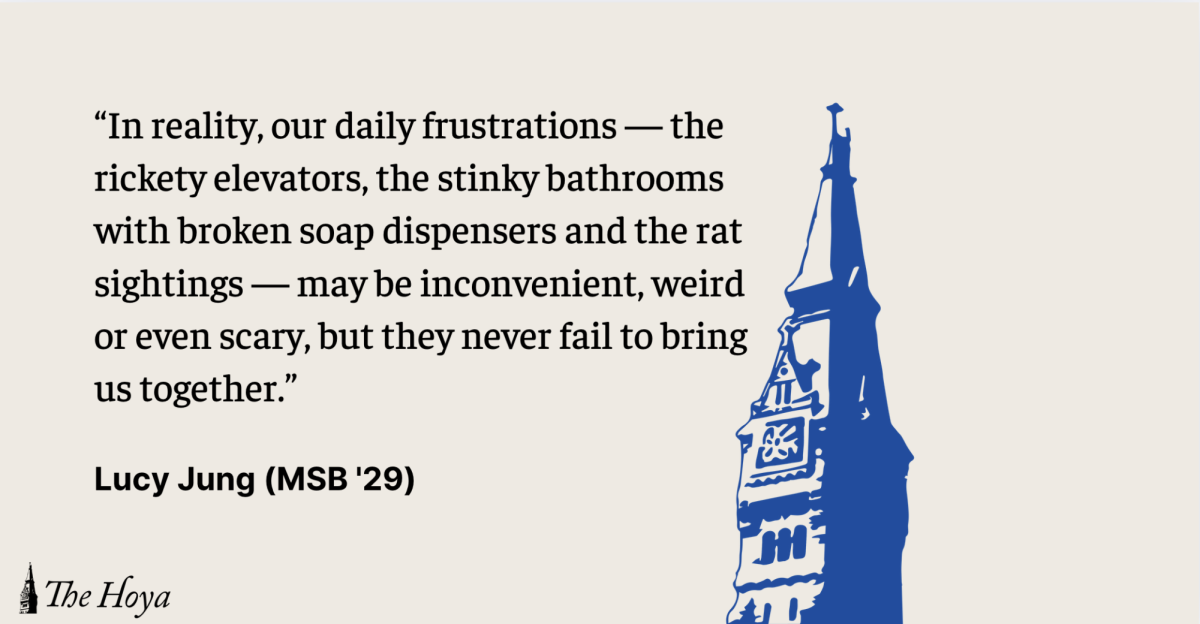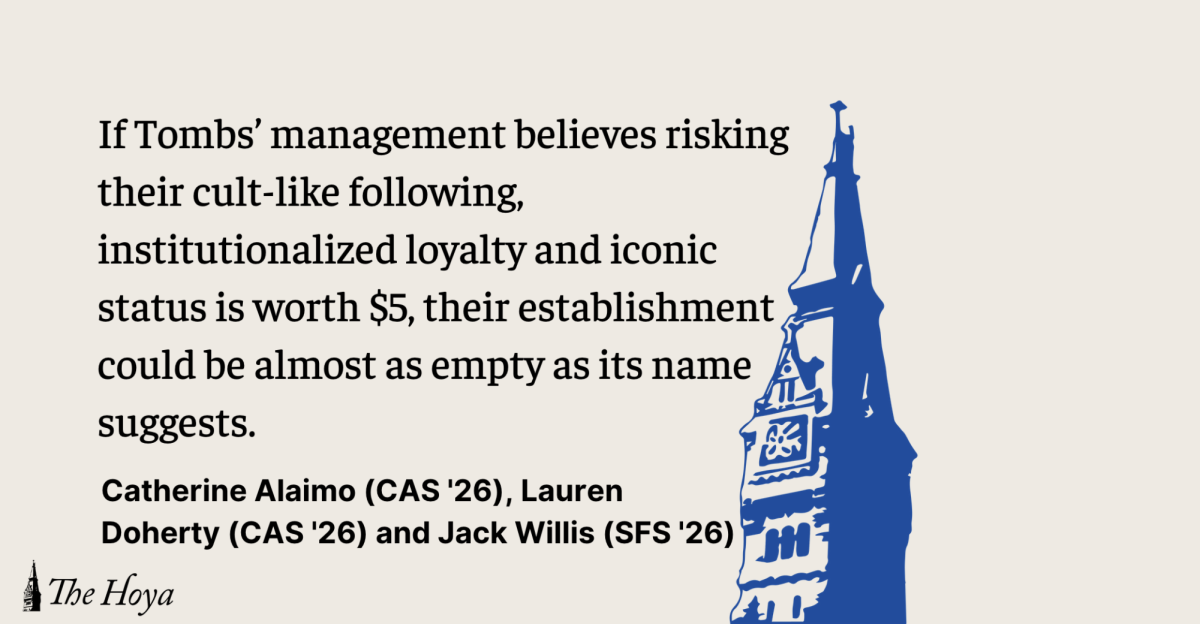When St. Ignatius of Loyola and six of his companions founded the Society of Jesus in 1534 in Paris, France, they committed the rest of their lives to serving God through servitude for those marginalized by society. The members of the Society, more commonly known as the Jesuits, were sent around the world to spread the Christian faith, adopting the motto, “Ad maiorem Dei gloriam inque hominum salutem,” or, “for the greater glory of God and the salvation of humanity.”
Today, the Jesuits are arguably best known for the hundreds of educational institutions they established along the way, including Georgetown University. Across campus buildings and decorations, you can find that motto abbreviated as “AMDG.” You can also find it honored in the actions of Georgetown students. Following in the Jesuit tradition, these students have built their own traditions of service, using each person’s talents for the greater good.
In today’s hyper-individualistic society, there is a peculiar sentiment that our only responsibility is to our own gratification. That is a most despicable notion that says we have no obligation toward the welfare of our neighbors. Quite the opposite is true. We achieve a higher manner of living when we begin to fully recognize the dignity of the human person and strive to protect it out of a selfless love for that person.
A degree from Georgetown University carries a certain prestige, but the education that the degree certifies is incomplete if the holder has only learned how to perform well in corporate positions. The Jesuit approach to education, summed up in the phrase “cura personalis” or “care for the whole person,” means a student should be comprehensively educated as a person rather than an employee.
This holistic education must include the virtue of charity. It is charity that destroys hate. It is charity that unites every person with every other person. It is charity that bridges every social division and erodes every inequality. Perhaps what society suffers most from is a lack of charity.
But for all of the ways that charity is great, inevitability is not one of them. Charitable deeds require some inspiration and a choice from the individual. Having gone to a Jesuit high school, those aforementioned Jesuit mottos have rung in my ears for as long as I can remember. I drove past a “men for others” sign every day on my drive to school, and every one of my team jerseys had “AMDG” written across the back. For as selfish as I was as a young teenager, encountering the Jesuit tradition of service in classes and on immersion trips helped me to look outside of myself and try to fulfill my duty to those in need.
When I got to Georgetown, I no longer had the same requirements for service. I could have completely ignored all of the earlier lessons and focused entirely on myself. Thankfully, I found a community that encouraged me to continue thinking about the world’s inequalities in the Knights of Columbus. The joy with which some of my fellow knights approached early Friday morning soup kitchens, refugee aid and other service events has further inspired me to engage my fellow people outside of my little bubble.
There are groups for everyone on campus that can support their charitable ambitions. Because of the incredible work of generations of Georgetown students and faculty, there are a host of opportunities for students who wish to encounter and serve those in need in society. There are dozens of on-campus student-run organizations that have significant public service components, such as Alpha Phi Omega, Right to Life, Best Buddies and many more.
Georgetown University also provides its own set of service opportunities for students and faculty. These opportunities include multiple immersion trips and tutoring with D.C. Reads, a mentoring and advocacy program for elementary school students in Washington, D.C. There are even some classes which include public service opportunities. The Center for Social Justice Research, Teaching & Service (CSJ) is a Georgetown University organization which provides great opportunities for students to participate in social justice advocacy, volunteer in underprivileged communities and participate in group dialogues on race, especially in relation to Georgetown University’s role in slavery in the United States. The ways to serve are not limited to the Hilltop. There are hundreds of volunteer opportunities in the D.C. area alone.
While there are undoubtedly a great number of inequalities in the world, we all can make a difference by directing our skills toward the common good. As Pope Francis, a Jesuit, said, “There is so much indifference in the face of suffering. May we overcome indifference with concrete acts of charity.” Social progress is never born out of complacency but out of action from brave people who are willing to engage the ugly in the world with loving charity. Georgetown has a lot to offer its students in the classroom, but the Jesuit education the university owes to every student is never completed until it inspires charity.
Max Derogatis is a sophomore in the McDonough School of Business.


